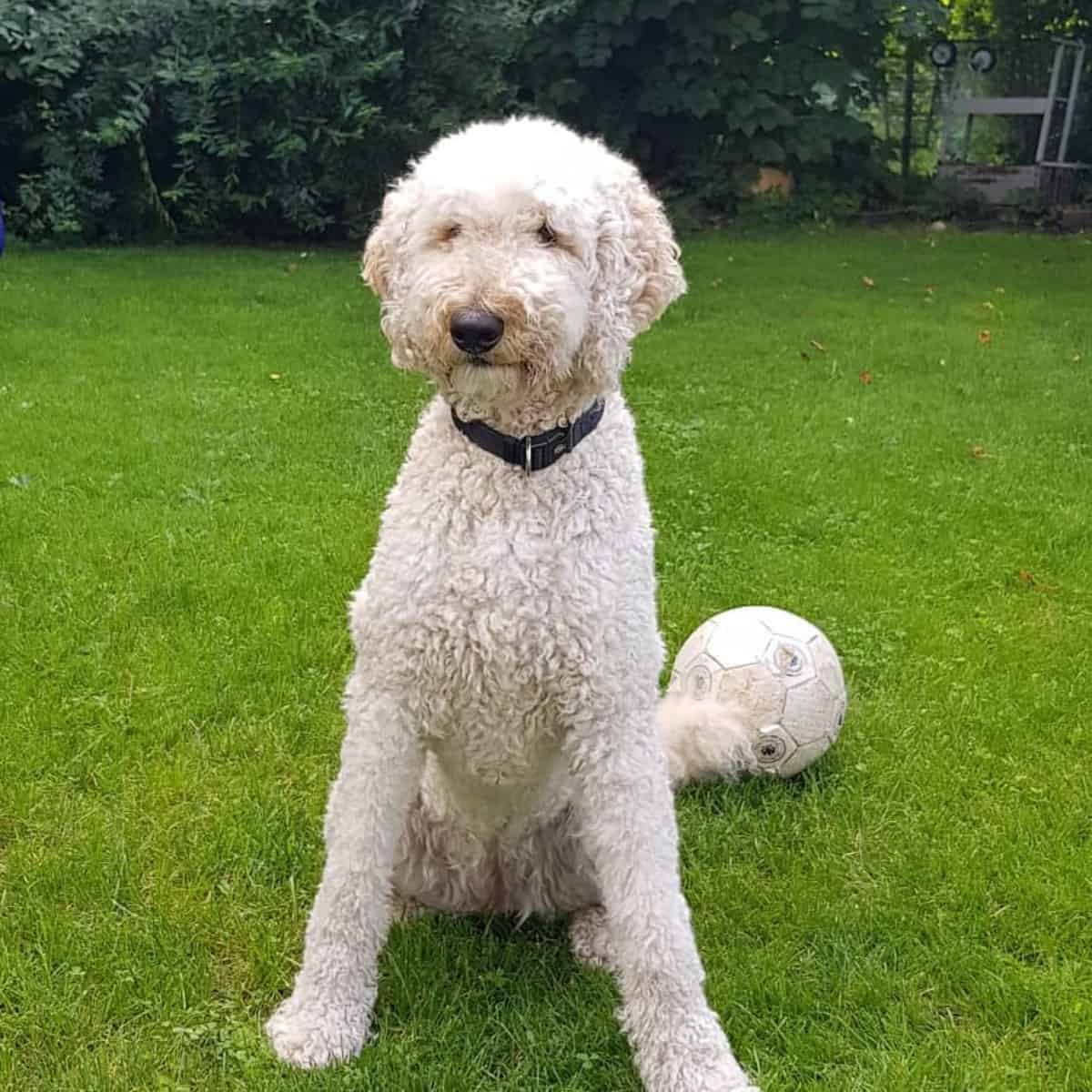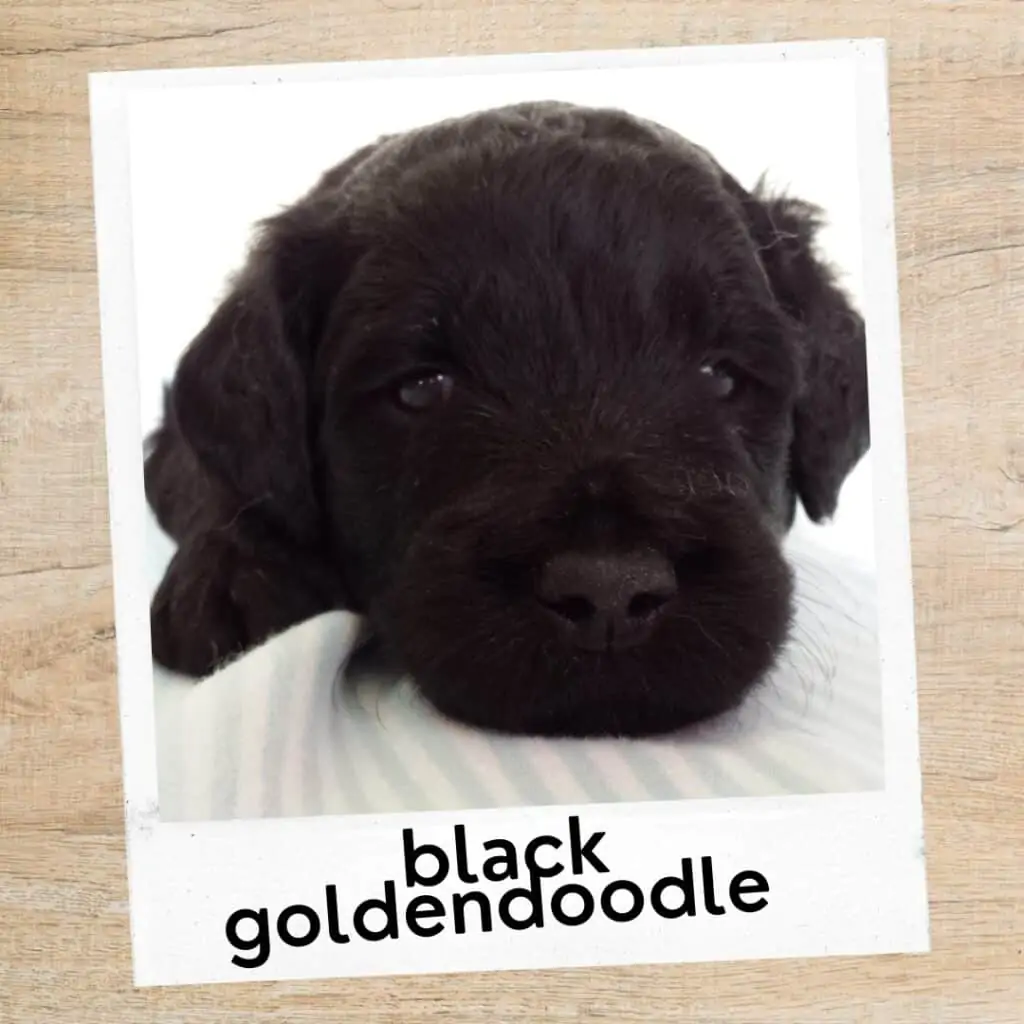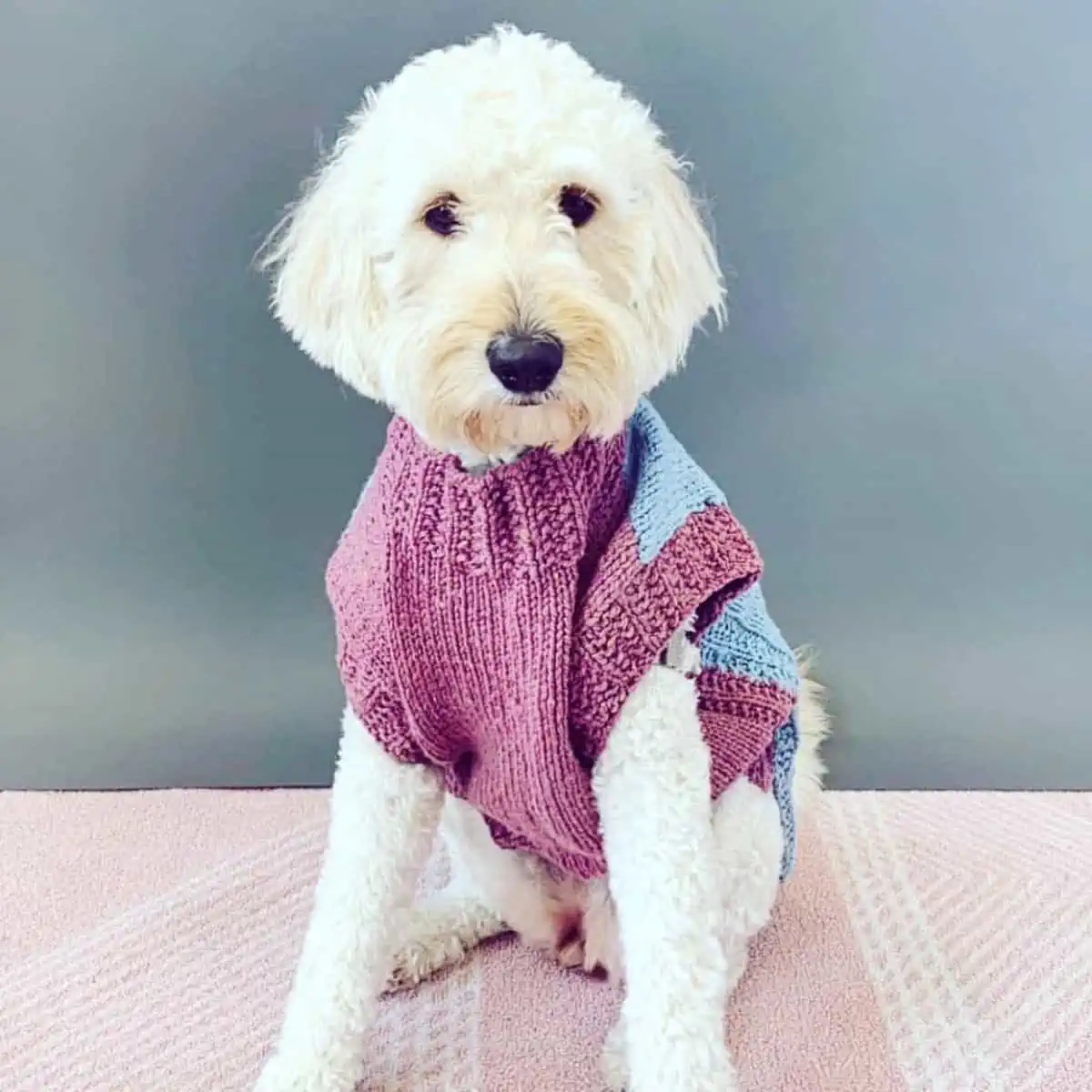Are Goldendoodles AKC? Can Goldendoodles Be AKC Registered?
Goldendoodles are an adorable breed of dog that are popular because they’re kid-friendly and super cute! When you’re trying to find the perfect four-legged companion for your family, you might also be curious about their breed registration options.
One of the most common questions is, “Are Goldendoodles AKC?” The answer is both yes and no. You can’t register your Goldendoodle as a purebred dog with the AKC, but you can register them in the AKC Canine Partners program.

Are Goldendoodles AKC?
Strictly speaking Goldendoodles are NOT AKC, and cannot be registered.

Goldendoodles don’t show up on the AKC list of purebred dogs, but you can register them with the AKC Canine Partner program. This program will put your mixed-breed dog’s background on the record. It also allows them to participate in AKC events.
Purebred dog breed owners like to register their animals so they have the clout that comes with owning a purebred, but it’s still important to register your dog. This will allow you or breeders to have the information necessary to make responsible breeding decisions.

In addition to knowing the background of your dog, the AKC Canine Partner program has additional benefits. These perks include enrollment in their Lost and Found Recovery Service and a Reunite collar tag.
What is a Purebred Dog?
The AKC recognized 195 breeds of purebred dogs. Owners of these dogs have documented pedigree and have often already registered their pets with kennel clubs. Reputable breeders who can trace each dog’s heritage line are the only way to ensure your dog is a purebred.
The organization specifies that the purebred breeds they acknowledge are modern dog breeds. They make this distinction because many dogs on the list, such as Golden Retrievers, were crossbred centuries ago.
As dogs like Golden Retrievers grew more mainstream and popular, they became considered purebreds. This means that organizations such as the AKC might eventually categorize Goldendoodles as purebreds in time.
Because people hold purebred dogs to such high standards, they are more expensive than mixed-breed dogs. When you adopt a purebred dog, you will pay for a DNA test and get written documentation that your dog is indeed purebred.
Misinformation has spread about purebred dogs having health problems because breeders mate these dogs within their breed, but studies have been conducted to show this isn’t true. A study from the Institute of Canine Biology showed that genetic disorders were just as common in mixed-breed dogs as in purebreds.
As you know, a Goldendoodle is categorized as a mixed-breed dog. Though people call it a “designer dog,” don’t let that title discourage you from looking for this type of dog at a shelter. They’re often available for adoption from shelters and rescues just as readily as from a breeder.
If you adopt a Goldendoodle from a shelter or rescue, you might have trouble discerning its background. Some rescues will have information about the dog if the owners contacted them to purposely rehome their dog. If someone brought the dog to the shelter with no information about its owners, you might want to do a DNA test to determine how to register your Goldendoodle.

What is the AKC?
The AKC, or American Kennel Club, was founded in 1884 as an organization to promote purebred dogs and their breeding. It offers resources to help purebred dog owners with the care and breeding of their pets. It is a nonprofit, though you must pay to register your dog through the organization.
The AKC website has valuable resources on how to find reputable breeders, how to care for your purebred dog, and allows registration of accepted breeds. They also sponsor events like the Westminster Kennel Club Dog Show, the National Dog Show, and the AKC National Championship.
Some people think having an AKC registered dog elevates their status, but it’s not as esteemed as you might think. AKC registration will show that your dog is purebred, but it doesn’t mean that your dog has show-quality bloodlines.
The AKC has the world’s largest database of dog DNA profiles. They do their own DNA testing and keep detailed records to ensure breeders are compliant with their standards. Because of this, people like to continue registering their purebreds with the organization to have access to the information.
Registering your dog with the AKC isn’t always the right path. Some dog owners think AKC registration is a deterrent because of the legacy aspect of the organization. Apparently the AKC will register any puppy whose parents have been registered without actually checking the health and status of the involved dogs.
While registered purebreds can give you access to your pet’s bloodlines, this information tells you nothing beyond names, owners, and years. This information doesn’t tell you anything about your puppy’s potential temperament, health issues, or behavior.
Similarly, adopting an AKC registered dog doesn’t mean the breeder you’re buying from is reputable. AKC reflects the quality of the dog’s bloodline only. And even then, AKC registered dogs can still have health problems, either related to the breed or not.
There are a lot of steps to take to register your dog with the organization. There are also upfront registration fees you’ll have to pay to complete the process. If you want to learn about your dog’s legacy, you’ll have to pay more money to get that information.
If you’re adopting a purebred from a reputable breeder, they will give you the information needed to file the Dog Registration Application with the AKC. The breeder won’t give you the AKC certificate, though. You’ll file all of the paperwork yourself to get your dog’s AKC Registration Certificate.
To register a purebred dog with the AKC, you must establish that the dog’s parents have also previously been AKC-registered as purebred in the same breed as your dog. If the breeder hasn’t registered the parents, the AKC will have to research registries to determine your dog’s origin.

Other Options
Since you can’t register your Goldendoodle as a purebred through AKC, you might want a different option. Registering your dog with any organization is worth the investment because you can get discounts on vet care and pet insurance, among other perks.

Some recommend GANA, the Goldendoodle Association of North America. It is the first and only breed club focused on Goldendoodles. All of the information, tips, and advice that comes from the organization is Goldendoodle-centric.
Coat Color does not matter to them – the heritage of the doodle dog is all they care for.
The registration fee will go back into supporting Goldendoodles by helping fund research about the dogs’ health, development, genetics, and more. Not only will your money go to a good cause, but you’ll benefit from the information they learn.
But you can’t register your dog based on the fact that it’s a Goldendoodle alone. Like AKC, you have to meet certain requirements. This means your dog must come from GANA-registered parents. You can find a list of reputable, registered breeders on their site. Every parent dog is registered which means any purebred Poodle and Golden Retriever will be up to scratch.
GANA’s breeders adhere to a strict health standard so you know they’re properly breeding and caring for their dogs. If you already bought a Goldendoodle and it does not have GANA-registered parents, you can register your dog with the Goldendoodle Registry.
Registering your Goldendoodle will not only give you peace of mind about your dog’s background but can also pay off in terms of ownership perks. Whether you pick the AKC, GANA, or another Goldendoodle-centric organization, this process is worth the investment.
At the very least find a local Doodle puppy club so you can familiarise yourself with the quirks of owning a mixed breed dog. If you are yet to buy or adopt your Goldendoodle, these clubs can offer advice on how to find a reputable goldendoodle breeder who is ethical and not running a two-bit puppy mill.
The dog breeding business is full of interesting types and doodle breeders are no exception. Luckily the community bands together to promote ethics and ensuring every single puppy in every single Goldendoodle litter is homed and cared for.